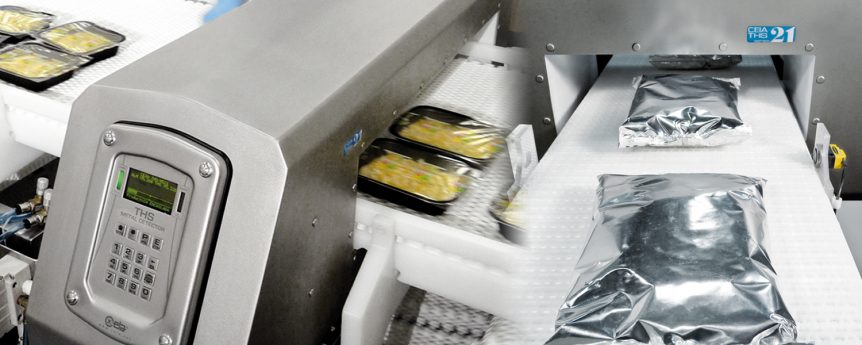MDS offer training packages which meet the M&S and Tesco Codes of Practice, these are usually done on site and are suitable for Tier C (QA and Supervisor level) or Tier D (Engineer level). MDS can offer packages as well as bespoke pay by the hour training.
Rob is training today, he has many years of experience in the metal detection industry, having worked in the industry for more than 10 years.
8 am – Rob arrives on site, he will sign in and be shown to a conference room to set up. All of the MDS trainers prefer to present using a screen if possible and often do sketches to help explain points easier. We do provide printouts of the training slides for the delegates to keep and make notes in, so no need to worry about remembering everything or taking enough notes.
8.30 am – The delegates arrive, the training today is for Tier D, which means that the QA and supervisors will only have to attend part of the training. The first part of the training is basic principles, this is not brand specific and shows the delegates what makes the metal detectors work. This is ideal for people who are new to the industry as it explains in detail how the machines work, it’s also an ideal time to ask any questions about it all.
11.00 am – Everyone will take part in a multiple choice question paper to make sure that the morning session was understood.
12.00 pm – We’ll have a short break so people can use the loo, grab some lunch and digest all the information they got given during the morning.
12.45 pm – After lunch is the Code of Practice section, again this will include all tiers as it is very important. Each supermarket has their own Code of Practice which needs to be adhered to in order for products to be sold by them. During this section Rob will go through the dos and don’ts of the specific retailers the factory provides for, we will need to know this information when the training is booked. Some sites will have multiple codes of practice running at one time, Rob is able to provide advice on the most efficient way to manage this.
1.45 pm – Everyone will now go to the metal detector on the factory floor. Ideally, this will be in a quiet area without any product running so Rob can make changes to the settings without disrupting anything. Rob will show the team how to set up the metal detector in compliance with the codes of practice, adjust the reject timers and how to deal with the common basic faults. This is another ideal time to ask any questions such as the best way to set up two detectors next to each other, or how to manage the counter system for example.
2.45 pm – The Tier C people can leave now as the rest of the day is more hands-on and aimed at the engineers (Tier D). This is the final section of the day and again is at the machine, this will be brand specific to the make and model of the metal detector being used. Rob will show the team the more advanced faults, how to swap boards and what each board does.
4.00 pm – Back up to the room for the final section of the day, which is a quick summary and questions. The team today have asked a lot of questions through the day so it’s a quick one, and Rob is packed up and on the way home by 4.30pm. All the paperwork will then be submitted back to the team in the office, and each attendee will get a certificate sent out to them to prove they attended and passed the course.

